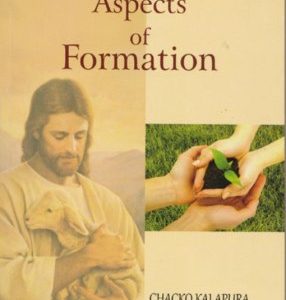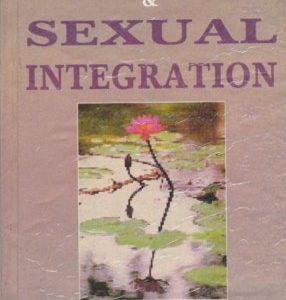Description
Let us know the Author Dr. Felix Podimattam OFM Cap.
Dr. Felix Podimattam is one of the best known Indian authors in the field of ethics and morality. He holds a Master’s degree in Political Science from the University of Mysore, a Licentiate degree in theology from Pontifical Gregorian University, Rome and a Doctoral degree in Moral Theology from the Alphonsian Academy, Rome. His doctoral thesis ‘The Relativity of Natural Law’ is acclaimed as exceptionally excellent. The thesis was guided by the eminent Moral Theologian, Bernard Haering, who influenced the renewal of Moral teachings of the Church during and after the Vatican II. Dr. Podimattam is resident professor at St. Francis Theological College, Kottayam and has been the founding member and first president of the Indian Moral Theologians Association. Most of his books, numbering over 120, are published by Media House, Delhi. Having gone through most of his books, let me highlight the most significant characteristics of his writings. First of all, he engages in a creative dialogue with other authors on every topic of discussion. Second, he tries to compare and integrate, as far as possible, the visions and views of other religions. Third, he holds a very positive attitude to life in general, especially to human body, sexuality, etc. Fourth, he is a keen observer of the socio-political and religious happenings in the society and responds to them immediately. His book on ‘Fast unto death’ during the upheaval of fisher people’s struggle in the eighties and his book on ‘Da Vinci Code’ a few years ago, where he gives a theological response to journalism with half-truths, are worth mentioning here. Fifth, he has taken keen interest on equal rights and dignity to women in the Church as well as in the society. In the context of widespread discrimination against women in the Church and society he published a six-volume work titled: ‘In praise of the woman’. Sixth, he holds on to the sacredness of life in all its forms and he has published books on topics like abortion, euthanasia, etc. Seventh, we find in his writings a harmonious blending of the traditional wisdom with its emphasis on fundamental Christian values as well as the findings of modern sciences like psychology, sociology, anthropology, etc, as well as the latest fruits of biblical exegesis.
The latest contribution of Dr. Podimattam, which may be acclaimed
The Making of a Masterpiece
The latest contribution of Dr. Podimattam, which may be acclaimed as his masterpiece, is: The Ten Commandments in the Law of Christ, a 20 volume work on the Decalogue. His vast knowledge on the subject gained through painstaking research, his teaching experience in various theological institutes stretching out over four decades and frank discussions with eminent thinkers have gone into this work. These books provide us with a re-interpretation of the commandments keeping in mind the genuine concerns of the people of God and at the same time remaining absolutely loyal to the teaching of Christ – “Christ did not come to abolish the law and the prophets, but to fulfil them”.
CONTENTS
INTRODUCTION
PART ONE. THE STATE
1. THE NATURE OF THE STATE
1.1. The Origin of the State
1.2. The State as Product of Nature
1.3. The State as Elemental Force
1.4. The State as Power Organization
1.5. The State as Welfare Community
1.6. The State as Legal System
1.7. The State as Unity of Consent
1.8. The State as Political Pluralism
1.9. The State as Arbitrary Structure
1.10. The State as Functional Institution
1.11. The State as Historical Entity
1.12. The State as Tainted by Sin
1.13. The State as Moral Value
1.14. The State in the Vision of St. Paul
2. THE SOVEREIGNTY OF THE STATE
2.1. Existence of the Sovereignty of Political Authority
2.2. Characteristics of the Sovereignty of Political Authority
2.3. The Original Location of the Sovereignty of Political Authority
2.4. Popular Sovereignty
2.5. Political Obedience
2.6. The Right of Resistance
2.7. Forms of Government
2.8. Modern Democracy
2.8.1. The Basis of Modern De-mocracy
2.8.2. The Characteristic Features of Modern De-mocracy
2.8.3. Criticism of Modern Democracy
2.8.4. The Reform of Democracy
2.8.5. Crucial Points in the Democratic Machinery
2.8.6. The Most Urgent Problems
2.8.7. The Modern Totalitarian State
3.THE FUNCTIONS OF THE STATE
3.1. Introductory Considerations
3.1.1.The Subsidiary Nature of the State’s Function
3.1.2. The Primacy of Politics
3.2. The Legislative Function of the State
3.2.1. The Constitution
3.2.2.Legislation
3. The Executive Function of the State
3.3.1. The Welfare Function of the State
3.3.2. The Cultural Function of the State
3.3.3. The Defensive Function of the State
3.3.3.1. Legitimacy of Defensive War
3.3.3.2. Universal Conscription
3.3.3.3. Refusal of Military Service
3.3.4. The Self-preservative Function of the State
3.3.5. The Fiscal and Budgetary Function of the State
3.4. The Judicial Function of the State
3.4.1. The Legal Function of the State
3.4.2. Punitive Right of the State
3.4.2.1. Punitive Right of the State in General
3.4.2.2. Right of the State to Inflict Death Penalty
3.4.3. Obligations of Judges
3.4.4. Obligations of Lawyers
3.4.5. Reflections on Indian Judiciary
3.4.5.1. Critical Reflections
3.4.5.2.Appreciative Reflections
3.4.6. The Civil Law regarding the Judiciary
3.4.6.1.The Judiciary and. Judicial Procedure
3.4.6.2.Hierarchy of Courts and their Jurisdiction
PART TWO. THE CHURCH
4.THE CHURCH AUTHORITY
4.1 Mediator between God and Men
4.2. Teacher of the Divine Truth and the Moral Law
4.3. The Church as Servant in Her Ministry
4.4. Duties of Believers
CHAPTER FIVE
CHURCH AND STATE
5.1. Guidelines for the Relation between Church and State
5.2. The Church.and Politics
5.2.1. Church’s Connection with and Separation from the World
5.2.2. Church’s Obligations in the Sphere of Politics
5.2.3. Limitations of Church’s Power in the Sphere of Politics.
5.2.4. Failures of the Church in the Sphere of Politics
5.3. The Message of the Church to the World
PART THREE.
THE COMMUNITY OF NATIONS
1. The Natural Community of Nations as Idea and Reality
2. The Prerequisite of the International Community: Equality among States
3. The Consequence of the Natural Community of Nations: No Abso-lute National Sovereignty
4. The Existence of International Law.
5. The Development of Positive International Law
6. The Foundation of International Law: The Sanctity of Treaties
7. The Paramount Purpose of International Law: The Preservation of Peace
8. The Substance of International Law: The Laws of War
9. The Organized Community of Nations: General Reflections
10. The Organized Community of Nations: Its Authority
11. The Organized Community of Nations: Its Political Function
12. The Organized Community of Nations: Its Judicial Function
13. The Organized Community of Nations: Its Economic Functions
14. The Organized Community of Nations: Its Social Functions
15. The Colonies, Mandates, and Trusteeships
CONCLUSION
BIBLIOGRAPHY




Reviews
There are no reviews yet.